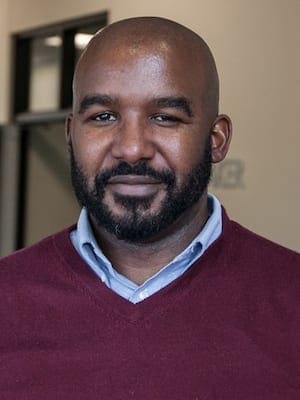One of Paul Harvey’s most famous radio segments was titled “The Rest of The Story.”
It began being broadcast during World War II. During these segments, Harvey would tell stories about ordinary people, who, after overcoming certain events, became someone important in world history.
The story would begin simply and anonymously but end with a surprise or twist.
Like the story of John Pemberton, who invented a cough syrup that did not taste good or sell very well.
Well, it did not sell very well until another pharmacist began to tweak the mixture of ingredients, eventually combining the syrup with carbonated water, turning it into a concoction we now know as Coca-Cola.
Or the story of Harland. A man who could not keep a steady job for most of his life. He tried his hand at almost every profession you could think of and failed at all of them.
He was considered a failure by everyone, even his own wife, who left him multiple times. One time she even took their daughter and hid her from him. He in turn tried to take her back but was arrested.
Life was never simple or fulfilling to him. Between the lack of a steady job and marital discord, life could not get any worse for this man.
Well, that was until he received his first Social Security check. The day that it was delivered to his home, he realized that he had squandered most of his life and had nothing to show for it.
So, he took that $105 retirement check and began his own culinary business. The man was Harland Sanders, better known as Colonel Sanders, and the restaurant was Kentucky Fried Chicken.
When telling the stories, Harvey would give an introduction that presented a tidbit or fact about the person to whet the listener’s appetite.
Often, it would be about how the person struggled for a portion of their lives and there seemed to be no hope for them in the future.
He would end the stories with his signature tagline, “And now, you know the rest of the story.”
I can imagine that often many readers and their congregation members have thought, “God, we miss the glory days of our churches. Please bring back those glory days when our buildings were bursting at the seams. Bring back former members so things can be like they used to be. We miss those people. We miss the way things used to be.”
I must admit that there is nothing inherently wrong with thinking and wishing those things. I sometimes find myself thinking the same things. Past relationships and past experiences are valuable and treasured.
But I can’t help wondering if there is a different way to respond to the changing landscape of organized faith and worship?
As much as we enjoyed the glory days, we don’t have to live in them or their shadows. Instead, like Solomon, we can ask God to make us wise so that we can rightly do what God has called us to do in the here and now.
God, give us the courage to envision new days and new friends in addition to our old friends, as well as new experiences, not just memories.
God, give us the discipline to enter a new mission with the priority to build your kingdom and not our own.
You can ask God to make you faithful so that you will see a new chapter of life through serving the community where God has allowed you to be planted in new ways that will stretch you and them so that God’s kingdom will be built, and God would receive the glory.
You can seek to remember and reimagine the precepts that God’s Word teaches and creatively implement them into your specific context in ways that make a meaningful impact to those in your specific context and not the ghost of the past.
You can be creative in how you build relationships with those who inhabit your community.
You can step out of your comfort zone without fear of disapproval from God.
You can explore new ways of being the church in the 21st century that honor God and uphold the long-held standards that are important to your church.
You can do all these things while challenging members and allowing them to be stretched spiritually and mentally. You can do these things and see where God allows you to end up.
And that, dear reader, can be the rest of your story. It can be the rest of the story for the church.
Editor’s note: This article is an excerpt from Carter’s book, “Learning to Be the Church in a New World,” published by Pinnacle Leadership Press. It is available here.
A pastor, author and educator living in St. Louis, Missouri, he is the author of several books, including The Gospel According to Broadway and Taking Apart Bootstrap Theology: Gospel of Generosity and Justice.


